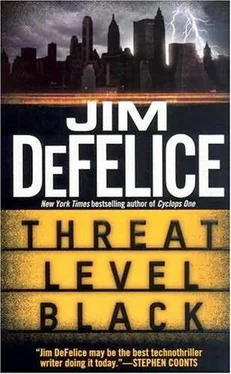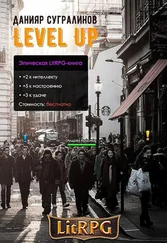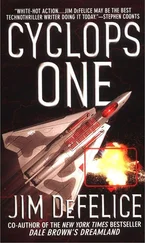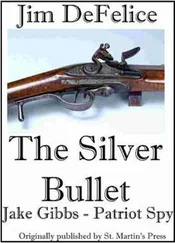“I hope so,” said Howe.
“Well, I’m sure of it. So is the board of directors.”
“I was told there might be questions about what happened in Korea,” said Howe. McIntyre had advised him to take the problem head-on, a strategy Howe himself favored.
“None. The CIA and the FBI were the ones who were flummoxed, not you. The attempt on your life the other day proves it. Was your lady friend hurt?”
“She’s not, uh, my girlfriend,” said Howe. He winced a little. “She was just a real estate agent who had been showing me houses. The thugs got the wrong idea.”
Nelson shook his head. “Thank God nothing happened to her.”
“So what happens now? The board takes a vote?”
“They’ve already voted,” said Nelson. “It was unanimous. You have the job-assuming you and I can come to terms.”
On Wednesday morning, Mr. Brown’s home aide showed up bright-eyed if not bushy-tailed at precisely nine A.M. The two state troopers had been reassigned to help the Secret Service on the psycho beat for the President’s visit next week, so Fisher took the surveillance himself, huddling in a peeper-type raincoat on the corner opposite the main entrance. He had a paper bag around a beer can for camouflage; he’d poured out the beer and replaced it with coffee. This made it a little sweeter than he liked, but then, surveillance was all about weathering discomforts.
Fisher had put motion detectors with wireless alerts in the hallways so he could move around a bit and not have to stare at the place the whole time. He could see the stairway down to Mr. Brown’s apartment with the help of a curved mirror in the lobby, but he had to stand directly across from the doorway to see it through the glass.
An hour passed, then two. Fisher went and bought another beer and another coffee at the store.
“Your liver’s not going to know if it’s coming or going,” said the clerk in Spanish.
“It doesn’t now,” answered Fisher.
Mr. Brown and his aide returned a little past one. With no other lead, Fisher followed the aide to a bar two blocks away, where the young man had a Bud Lite before reporting to another assignment. Since the city council had not yet gotten around to outlawing lite beer, Fisher had to leave him be.
He was heading back toward Mr. Brown’s when his sat phone rang. Worried that it was Macklin trying to hook him into the psycho watch, he checked the number before answering.
“Hey, Martha, how’s my credit card doing?” he said, hitting the Talk button.
“Looks like you just bought a couch in Peoria.”
“Great,” said Fisher.
“It’s a start, Andy,” said Friedrickberg. “You’ll move on to big-screen TVs by the end of the day, I promise.”
“Bureau’s going to reimburse me, right?”
“Oh, I wouldn’t worry about it. You can always declare bankruptcy.”
“Sounds promising.”
“Listen, I did a little checking on your behalf, into your case.”
“And?”
“I have a list of the regular customers. They’re just mailing addresses for the most part: boxes. I can send it, but only to you.”
“Let’s save some time,” said Fisher. “Which one is in Inwood? Nagle Avenue?”
“Jesus, Andy, how did you know?”
It was in Mr. Brown’s building, two floors up.
Despite the fact that Fisher warned them the apartment would be empty, Macklin and the U.S. attorney who had obtained the search warrant insisted on joining Fisher, the two NYPD plainclothes detectives, the six uniform patrolmen, and the postal inspector on the raid. It was the postal inspector Fisher really wanted, since he figured the apartment was being used primarily as a mail drop. There was an oversize box in the lobby; the mailman said it usually accumulated nearly a month’s worth of junk mail before being emptied.
Today it held only a week’s worth, judging from the dates on the circulars and the thin community newspaper. There were no credit cards, a fact that bothered the federal attorney greatly since they had relied heavily on the cards for the search warrant.
The second-floor apartment itself was completely empty, without even furniture; if Faud Daraghmeh had stayed there, he had removed all traces of himself.
“I’ll give him one thing,” said Macklin. “He’s a tidy son of a bitch. Assuming he was here.”
“Let’s talk to Mr. Brown and see if he’ll let us look in his place,” said Fisher.
“On what grounds?” asked the attorney.
“On the grounds that he’s a nice guy with nothing to hide.”
“You’re really stretching it,” said Macklin.
Brown was a nice guy, but the search of his apartment turned up nothing. When Fisher suggested chemical detection gear, the U.S. attorney left the apartment shaking his head. Macklin sighed and followed, as did the policemen. Fisher sat down with Mr. Brown and had a beer, which tasted a little funny without coffee in it.
“Tough day, huh?” asked the blind man.
“They’re all tough.”
“Tell me about it. But at least you got that door unstuck for me. I appreciate it.”
“You’re welcome,” said Fisher. “Here’s a question for you: Why would someone who lived in Inwood want a copy of a community newspaper from Chelsea?”
“See how the other half lives,” said Brown. He found this funny and laughed.
Fisher sipped his beer.
“Or he used to live there,” said Brown.
Fisher jumped up. “Thanks for the beer.”
“You leavin’?”
“Gotta go find the newspaper office,” said Fisher.
Three of the apartments listed in the Gazette had been rented, one by a woman and the other two by young men. Fisher concentrated on the men first, spending a good deal of Thursday and much of Friday morning ruling them out as Faud Daraghmeh.
This would have been relatively easy had he been able to see them at any point; the first renter turned out to be a six six weight lifter from Wisconsin seeking fame and fortune as an actor in New York. The other was a Buddhist monk, shaved head and all.
Which left, at least as far as this straw was concerned, the woman. The landlord hadn’t given Fisher a name, and in fact had just rudely hung up when Fisher tried to get more details. Fisher went over to the apartment two blocks south of the Fashion Institute and realized that he should have come here first: The name taped on the mailbox was Fama Ahmed Ali. The apartment was on the third floor of a large building; there was no way for one person to watch it without camping directly outside the door, where he could be seen.
“No stakeout,” said Macklin. “We don’t have the personnel.”
“You can’t get NYPD to do it?”
“They have their hands full. Not only do they have the Final Four, but there’s a big session going on at the UN right through the weekend. The President’s coming up Monday. This is huge, even for New York.”
“Get me a search warrant, then.”
“A search warrant?”
“If I go knocking on the door and it is Faud Daraghmeh or his sister or whatever, they’ll start flushing the evidence as soon as I leave.”
“We’re not even close to reasonable grounds here, Andy.”
“You’re telling me in all New York City, there’s not one judge who’d give you a search warrant?”
“Jeez.”
“What if we got an anonymous tip that Fama Ahmed Ali was plotting to kill the President.”
“You can’t do that, Andy! Christ.”
“Just asking a theoretical question.”
“I’ll see if I can get a warrant. Don’t call in a threat. Don’t. Don’t.”
“Now, would I do that?”
A set of stairs sat at the end of the hallway on the third floor. Fisher had propped open one of the heavy glass and wrought-iron doors, which let him hear but not see what was happening in the hallway; he came down the steps a few times as the elevator stopped on the floor, but in the three hours he spent there, no one went in or out of the apartment. Finally, Macklin called: He’d managed to get the search warrant and even two NYPD officers to help in the search.
Читать дальше












